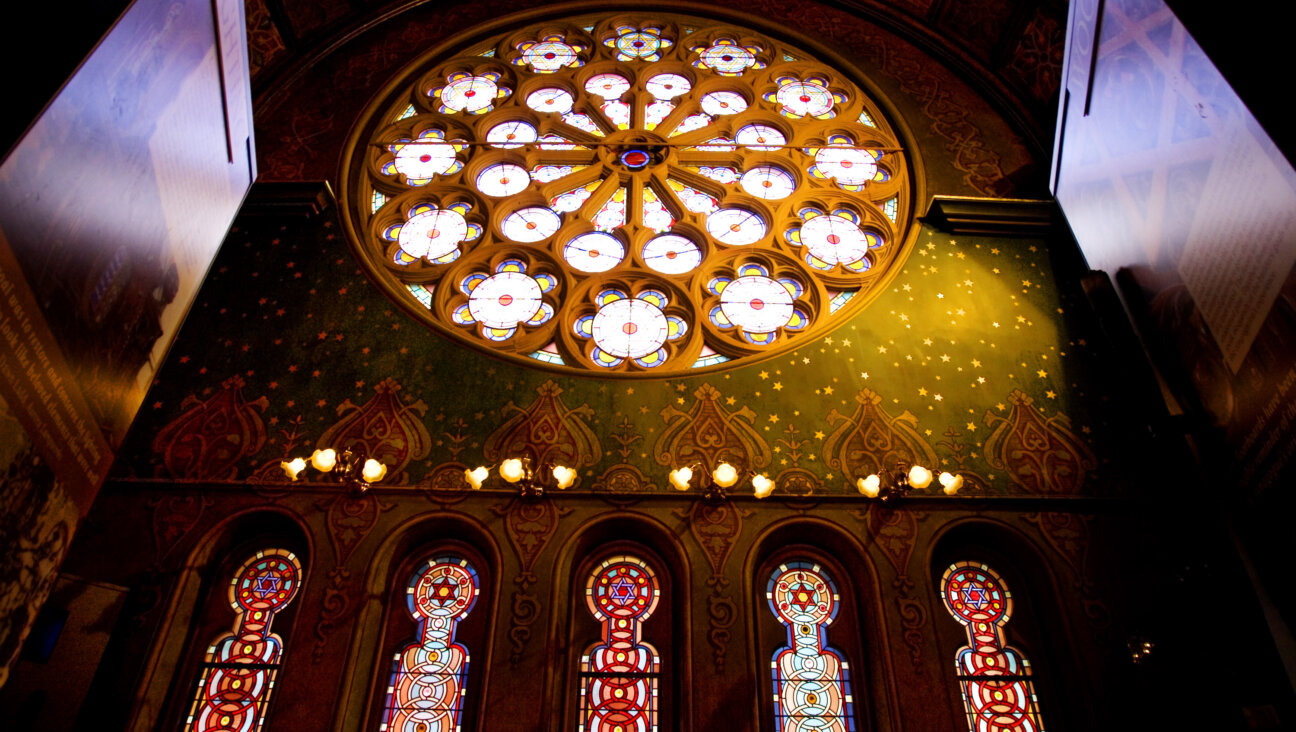Mayor Seeks To Block Crematory Near Camp
The mayor of Lublin introduced a resolution that would prevent the construction of a commercial crematory in the area surrounding the former Majdanek Nazi camp.
Mayor Krzysztof Zuk offered the resolution to the City Council at a meeting on Thursday that would designate the area as a protected area.
“Today, Lublin City Council decided to start the work on the local development plan of area located around the museum at Majdanek. Work on the this plan will take nine months, during which time it will be possible to decide about the future of the site of the area near the camp, and to designate a buffer zone around the Holocaust memorial,” Beata Krzyzanowska, a Zuk spokesperson, told JTA on Thursday.
The Polish funeral company Styks has plans to build a crematory near the former camp. The company has made several bids at building the crematorium there over the past few years.
In late August, the Anti-Defamation League sent a letter to Zuk asking him to block the idea.
In a letter to Abraham Foxman, the ADL’s national director, Zuk wrote, “I understand the outrage of many communities, which stand firmly opposed to the proposal to build this type of building so close to the site of the former extermination camp. I will do everything in my power to ensure this place in Lublin is treated with due respect and is regarded as a most sacred place of remembrance for the victims of the Holocaust.”
More than 75,000 people were murdered at Majdanek during the Holocaust. The Nazi death camp covered 667 acres of land on the highway connecting Lublin, Zamosc and Chelm. It had seven gas chambers where inmates were killed and two crematoria where their bodies were cremated.
Majdanek is now a state Holocaust memorial and museum that hosts thousands of visitors annually.
A message from our CEO & publisher Rachel Fishman Feddersen

I hope you appreciated this article. Before you go, I’d like to ask you to please support the Forward’s award-winning, nonprofit journalism during this critical time.
At a time when other newsrooms are closing or cutting back, the Forward has removed its paywall and invested additional resources to report on the ground from Israel and around the U.S. on the impact of the war, rising antisemitism and polarized discourse.
Readers like you make it all possible. Support our work by becoming a Forward Member and connect with our journalism and your community.
— Rachel Fishman Feddersen, Publisher and CEO























